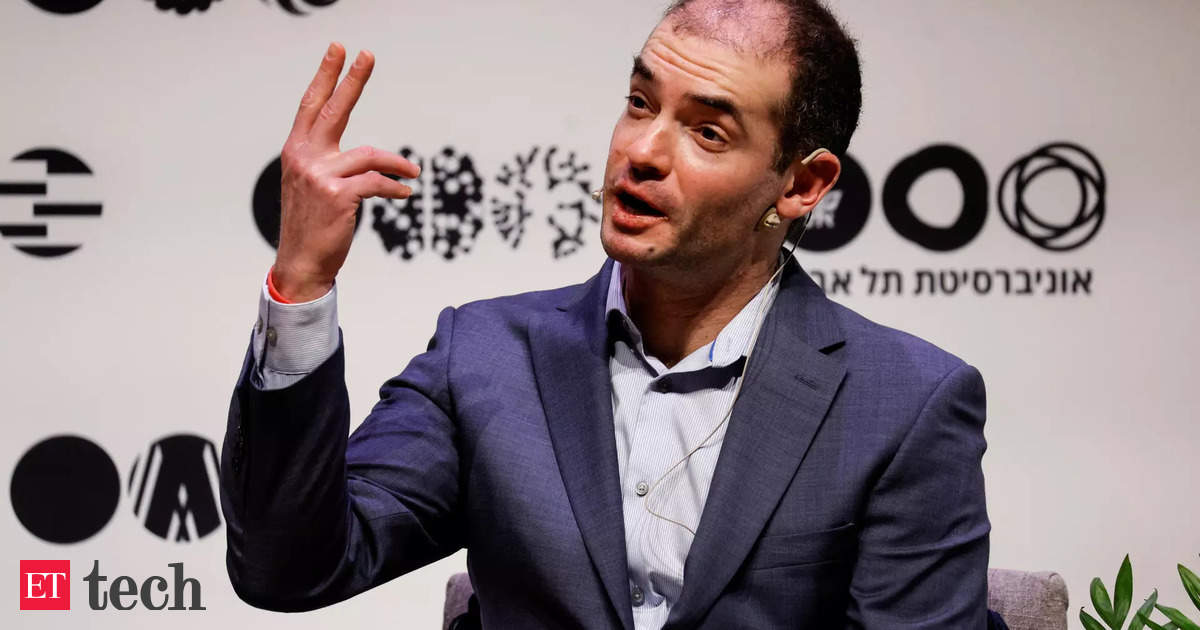SSI, which currently has 10 employees, plans to use the funds to acquire computing power and hire top talent. It will focus on building a small, trusted team of researchers and engineers, spread out between Palo Alto, California, and Tel Aviv, Israel.
The company declined to share its valuation, but sources close to the matter said it was valued at $5 billion.
He funds The study highlights that some investors are still willing to make big bets on exceptional talent focused on fundamental AI research, even though general interest in funding such companies has waned, as they may prove unprofitable for some time, leading to several startup founders leaving their jobs to work for tech giants.
Investors included major venture capital firms Andreessen Horowitz, Sequoia Capital, DST Global and SV Angel. Also participating was NFDG, an investment firm led by Nat Friedman and SSI CEO Daniel Gross.
“It’s important for us to be surrounded by investors who understand, respect and support our mission, which is to take a direct step towards secure superintelligence and, in particular, to spend a couple of years researching and developing our product before bringing it to market,” Gross said in an interview.
Discover the stories that interest you
AI safety, which refers to preventing AI from causing harm, is a hot topic amid fears that unauthorized AI could act against humanity’s interests or even cause human extinction. A California bill that seeks to impose safety standards on companies has divided the industry. It is opposed by companies including OpenAI and Google, and supported by Anthropic and Elon Musk’s xAI.
Sutskever, 37, is one of the most influential technologists in the field of artificial intelligence. In June, he co-founded SSI with Gross, who previously led AI initiatives at Apple, and Daniel Levy, a former researcher at OpenAI.
Sutskever is the chief scientist and Levy is the principal scientist, while Gross is responsible for computing power and fundraising.
New mountain
Sutskever said his new venture made sense because he “identified a mountain that’s a little bit different than the one he was working on.”
Last year, he served on the board of directors of OpenAI’s parent nonprofit, which voted to oust OpenAI CEO Sam Altman due to a “communications failure.”
Within days, he reversed his decision and joined nearly all OpenAI employees in signing a letter demanding Altman’s return and the board’s resignation. But the turn of events diminished his role at OpenAI. He was ousted from the board and left the company in May.
Following Sutskever’s departure, the company dismantled its “Superalignment” team, which worked to ensure AI remained aligned with human values in preparation for a day when AI surpasses human intelligence.
Unlike OpenAI’s unorthodox corporate structure, which was put in place for AI safety reasons but made Altman’s ouster possible, SSI has a regular, for-profit structure.
SSI is currently very focused on hiring people who fit its culture.
Gross said they spend hours evaluating whether candidates have “good character” and look for people with extraordinary abilities rather than overemphasizing credentials and experience in the field.
“One thing that excites us is when we find people who are interested in the work, who are not interested in the scene, in the publicity,” he added.
SSI says it plans to partner with cloud providers and chip companies to fund its computing power needs, but has not yet decided which companies it will work with. AI startups typically work with companies like Microsoft and Nvidia to address their infrastructure needs.
Sutskever was an early proponent of scalability, a hypothesis that AI models would improve their performance if given a large amount of computing power. The idea and its execution kicked off a wave of AI investments in chips, data centers, and energy, laying the groundwork for generative AI advances like ChatGPT.
Sutskever said he would approach the expansion in a different way than his previous employer, without sharing details.
“Everyone talks about escalation hypotheses, but no one asks the question: what are we scaling?” he said.
“Some people can work long hours and follow the same path faster. It’s not exactly our style. But if you do something different, then you can do something special.”
Disclaimer:
The information contained in this post is for general information purposes only. We make no representations or warranties of any kind, express or implied, about the completeness, accuracy, reliability, suitability or availability with respect to the website or the information, products, services, or related graphics contained on the post for any purpose.
We respect the intellectual property rights of content creators. If you are the owner of any material featured on our website and have concerns about its use, please contact us. We are committed to addressing any copyright issues promptly and will remove any material within 2 days of receiving a request from the rightful owner.


